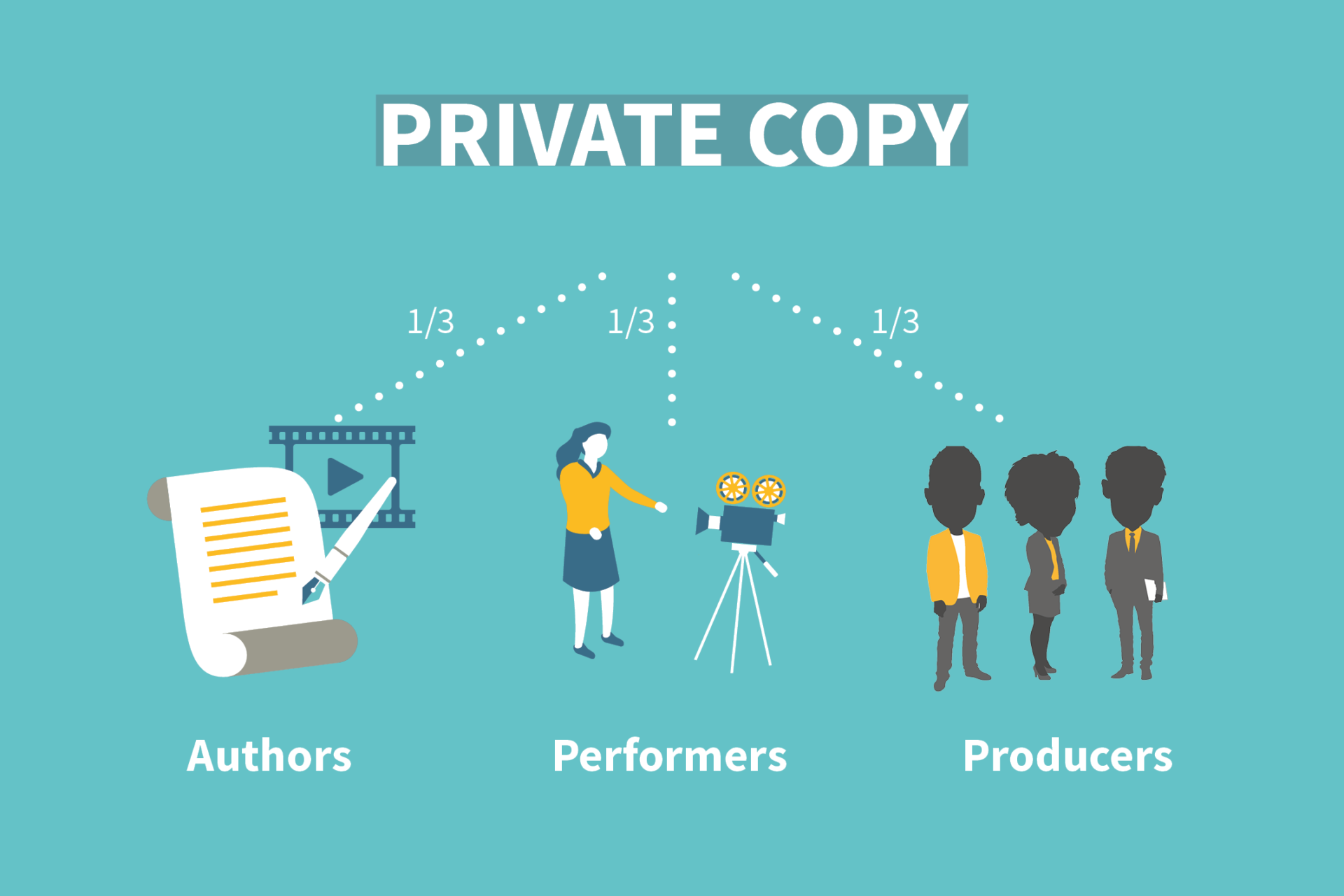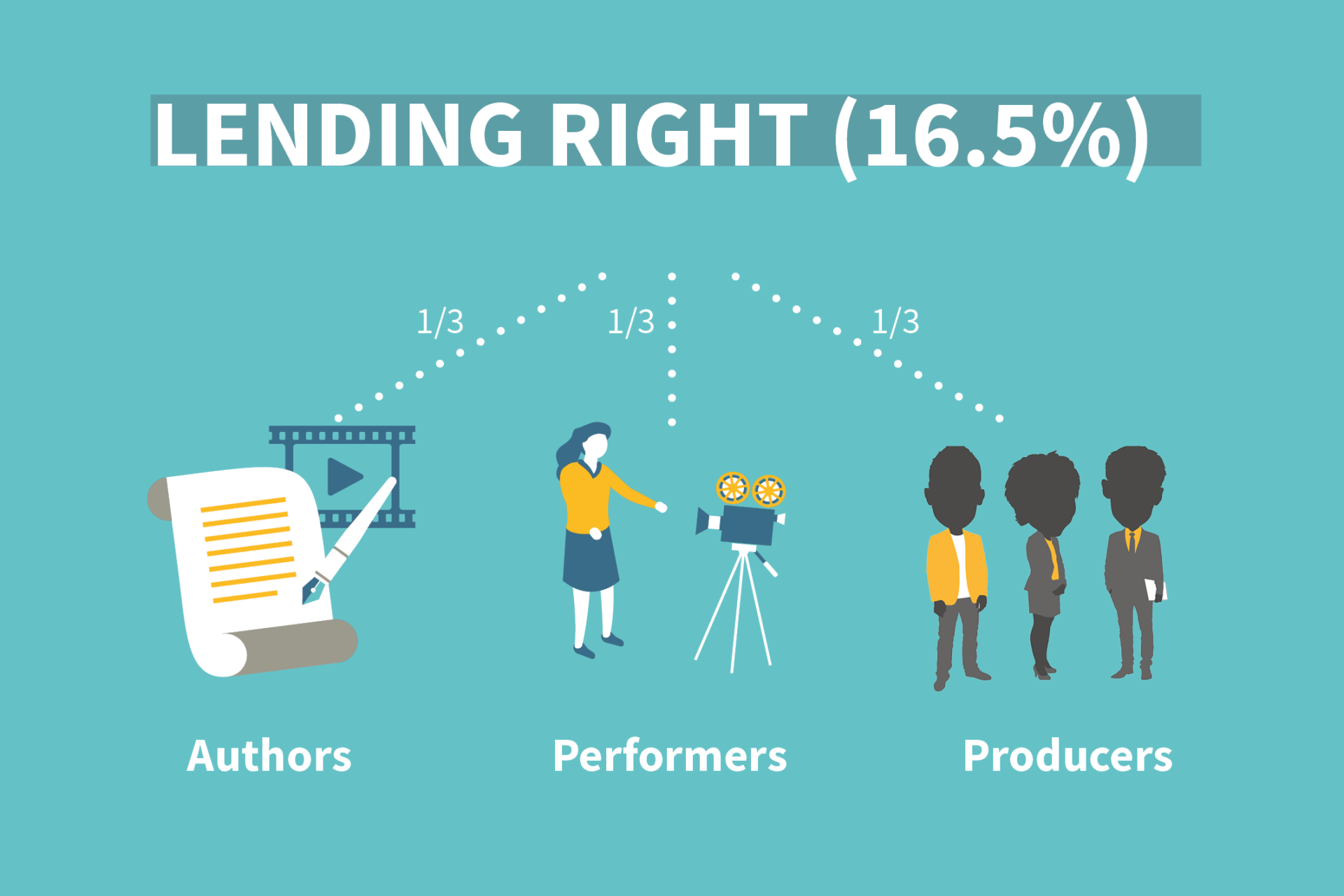- Playright
- Playright+
- My rights
- Manage my rights
- Distribution of my rights
- General rules of distribution
- First / final distribution: how it works
- Music performance: how PlayRight calculates my rights
- Which radio stations are included in PlayRight playlists?
- Audiovisual performance: how PlayRight calculates my rights
- Which TV channels are included in the PlayRight Playlists?
- my rights abroad
- Equitable remuneration
Actors: understand neighbouring rights
When a performing artist (musician, actor, dancer, vaudeville or circus artist) takes part in the performance of a work, and if that performance is recorded and then broadcast or copied, the artist in question is entitled to a remuneration/fee. In other words, the artist acquires a neighbouring right at the moment of the performance.
This remuneration is a compensation for the fact that once recorded, the music and audiovisual works you have participated in as a performer can, in certain cases, be exploited without your consent.
The remunerations that are at the origin of your neighbouring rights as an actor in Belgium are the following:
- The remuneration for private copying,
- The remuneration for lending rights,
- The remuneration for education and scientific research,
- The remuneration for retransmission, cable retransmission and communication via the direct injection,
- The remunerations for online exploitation (on content-sharing platforms and streaming platforms).
1- The remuneration for private copying
The law authorizes the copy of music and films on devices and media such as CDs, tablets, USB sticks, computers, etc. without the required consent of authors, performers and producers, as long as the copy is made for private purposes.
As a compensation, the rightsholders have a right to remuneration called “remuneration for private copying”. This remuneration is debited when purchasing devices and recordable media (listed in a royal decree). It is collected by Auvibel and then distributed at one third to each one of the collecting societies who represent:
- The performers (PlayRight),
- The producers,
- The authors.

2- Remuneration for lending rights
The performers also have a remuneration for lending rights. The principle of this remuneration is the same as the private copying: a performer cannot prevent that libraries lend their recordings, so likewise, these institutions have to pay a remuneration to the rightsholders for lending the recordings they participated in. Once collected, PlayRight handles the distribution of the share that belongs to the performers, for one or several reference years.
The share of the remuneration for the lending rights concerning sound and audiovisual recordings is currently estimated at 16.5%. Auvibel is the company in charge of distributing this share of remunerations collected by Reprobel. Then, Auvibel transfers one third to each one of the collecting societies who represent:
- The performers,
- The producers,
- The authors.

3- The remuneration for education and scientific research
The remuneration for education and scientific research is a unified remuneration that groups the remunerations for the exceptions that educational institutions and scientific research institutions benefit from. As a compensation for these exceptions, a remuneration is due to the authors, publishers, producers and performers.
4- The remuneration for the retransmission, cable retransmission and communication via the direct injection
Belgian law grants a system of mandatory collective management consisting of a non-transferable right to remuneration to performers whose recorded performances are retransmitted on television. This is a right that they cannot renounce. Different modes of exploitation are included in this law: retransmission by cable (since 2015), communication by direct injection (since 2019), and retransmission carried out by any other technical means than the cable (including the internet) (since 2022). Playright collects this remuneration directly from the cable distributors, and then distributes it amongst the performers.
5- The remunerations for online exploitation (on content-sharing platforms and streaming platforms)
In June 2022, a new law was adopted as part of the modernisation of the copyrights and neighbouring rights and the transposition of a European directive. This new law introduces:
- A new non-transferable right to remuneration for artists for the use of their performances on online content-sharing platforms. This new remuneration right is limited to compensating for performances uploaded by users on online content-sharing platforms, such as Facebook, YouTube, TikTok and Twitch.
- A new non-transferable right to remuneration for artists for the use of their performances on commercial streaming platforms. This right to remuneration aims to compensate musicians and actors for the online use of their performances and targets platforms such as Spotify, Netflix, Deezer, Apple TV or Apple Music, and so on.
These remuneration rights are subject to mandatory collective management and must be paid by the online platforms. Playright is currently negotiating with the platforms in order to obtain a fairer remuneration for performers.
To provide you with an optimal browsing experience and personalized services and content to suit your interests, this website makes use of cookies. More information..
I accept cookies I refuse cookies


